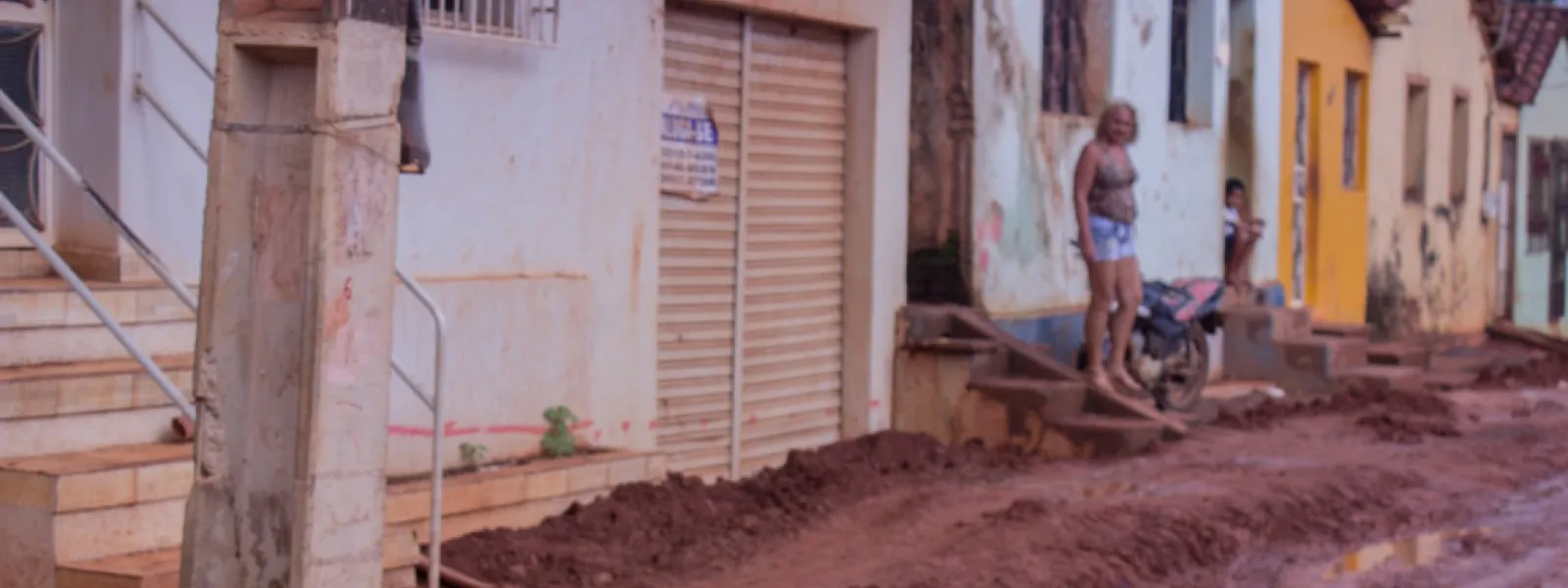
Project
Photo: Maíra Irigaray / Amazon WatchHolding Brazil accountable for the Belo Monte Dam
When fully operational, Belo Monte will be the third-largest dam in the world, constructed in one of the most important ecosystems on the planet: the Amazon rainforest. It sits on the Xingu River in Pará, a state in northern Brazil. The reservoir will cover 500 square kilometers of forest and farmland—an area the size of Chicago.
For the people of the Xingu, construction of Belo Monte has meant loss of access to water, food, housing, work and transportation. At least 20,000 people have been displaced.
The government and construction consortium began to construct the dam without first consulting the people of the region, many of whom are indigenous. They flouted international human rights law, which requires the free, prior and informed consent of affected indigenous communities. Brazil also failed to comply with precautionary measures issued by the Inter-American Human Rights Commission, which were intended to protect the life, health, and integrity of local communities.
Though Belo Monte began operations in May 2016, it is not yet operating at full capacity. In April 2016, a federal court suspended the dam's operating license because the consortium in charge did not complete basic sanitation works in Altamira, the city nearest to and most affected by the dam.
Partners:
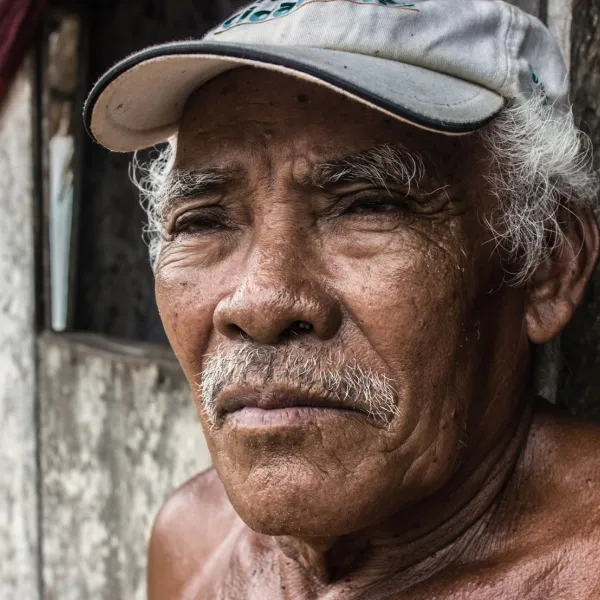
Related projects
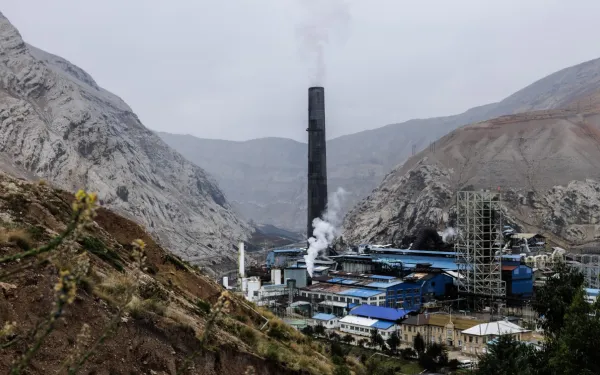
La Oroya v. Peru: Historic precedent on human rights and the environment
The Inter-American Court of Human Rights set an important precedent for state oversight of industrial pollution. By Rosa Peña and Jacob Kopas*This past March, the Inter-American Court of Human Rights, the human rights tribunal for the Americas, released an historic ruling condemning Peru for failing to control toxic industrial pollution. The ruling set an important precedent for the right to a healthy environment and state oversight of corporate activities across the Americas.This victory began as a petition that the Interamerican Association for Environmental Defense (AIDA) and Earthjustice, together with partner organizations, presented in 2006 on behalf of families and environmental defenders in La Oroya, a small town in the heart of the Peruvian Andes. For more than 100 years, an industrial smelter has exposed La Oroya to extreme levels of toxic pollution, leading to nearly all the town’s children having dangerously high levels of lead and other heavy metals in their blood.The court’s binding judgment is a powerful condemnation that the families of La Oroya are today using to demand concrete action from the Peruvian government. In addition to financial compensation, the court ordered Peru to halt further harmful pollution from the smelter, clean up the toxic metals in the soil and water, and provide specialized health care for the victims and inhabitants of La Oroya. The court's judgment itself also constitutes a form of reparations for the victims, by acknowledging the legitimacy of their work as environmental defenders.The significance of the ruling goes far beyond the immediate benefits for people in La Oroya and Peru. Ensuring the environmental quality of water and air in Latin America remains a major challenge across the Americas. This is the first time that the Inter-American Court has held that industrial pollution can harm human rights, opening a path to justice for communities in so-called “Sacrifice Zones” overburdened with industrial pollution.The court’s landmark ruling establishes several key precedents with significance for both international and domestic jurisprudence. Innovative new measures for collective reparations.This case went beyond previous cases by ordering not only individual reparations, but also collective reparations that benefit all inhabitants of La Oroya. These include environmental remediation of the surrounding ecosystem (para. 351), comprehensive and specialized health care for any inhabitant who presents symptoms (para. 348), and support for relocating inhabitants who wish to do so (para. 355). In addition, the court ordered differentiated measures for women, children, and elderly victims. The judgment also ordered environmental and public health measures that will improve the lives of all Peruvians impacted by the mining industry, including bringing air quality standards in line with international standards (para. 346), guaranteeing that mining companies adhere to the UN Guiding Principles on Business and Human Rights (para. 352), and creating an information system that proactively provides updated air and water quality data in mining areas (para. 354). Showing causality: Exposure to a significant health risk is enough to prove a human rights violation.One major obstacle to access to justice for communities exposed to dangerous pollution is showing causality, that is, proving that pollution caused a specific health condition. Showing causality is often difficult because many communities lack access to proper health care and diagnostic tests, because some conditions such as cancer can be latent and lie undetected for years, and because many different factors contribute to poor health. To account for this reality, the court held that it is sufficient to show that an exposure to pollution created a significant health risk, without having to prove that the exposure caused a concrete condition or disease (para. 204). The court also went a step further, and noted that under the precautionary principle, the lack of scientific certainty regarding those risks cannot be an excuse for failing to adopt measures to protect public health (para. 207). The right to clean air and water as substantive elements of the right to a healthy environment.In the judgment, the Court established that the right to a healthy environment includes the rights to air and water that are free of pollution which could constitute a significant risk to health and rights. These rights also entail specific obligations for states. These include:Setting environmental quality standards that do not constitute a risk to health and that are based on the best available scienceMonitoring air and water quality and providing access to information on pollution that endangers healthCreating plans to maintain air and water qualityEffectively enforcing environmental quality standards and ensuring the proper management of water resources (paras. 120-121) Access to public participation in environmental decisions.This ruling is also the first time that the Inter-American Court has condemned a state for failing to guarantee effective public participation in environmental decision-making affecting the general public (para. 256). In prior cases, the court examined the right to public participation only in the context of consultation with Indigenous Peoples, who have special protections under international law. In addition, the court held that the mere existence of formal procedures for public participation may not be sufficient for states to satisfy their obligations under the American Convention. Authorities must also ensure that these procedures provide an effective opportunity to be heard and participate in decision making (para. 260). The judgment also consolidated advances in other important issues for environmental justice in the region:Business and human rights obligations. The court emphasized states’ obligations to protect human rights and their duties to supervise and control companies (paras. 109-110). It also held that companies themselves have responsibilities to respect human rights and act with due diligence, regardless of their size, sector, operational context, ownership, or structure (para. 111).Environmental pollution violates the right to a dignified life. Because pollution impacted many different areas of the lives of families in La Oroya, it also violated their right to a dignified life. These impacts included not being able to carry out a life project under normal circumstances, which affected their personal, family, psychological, and professional development (paras. 220-230).The effects of environmental contamination fall disproportionately on individuals, groups, and communities that already bear the burden of poverty, discrimination, and systemic marginalization. The court recognized that pregnant women, children, teenagers and the elderly, who, given their condition, are frequently exposed to a greater risk of harm from pollution (para. 134). Given the principle of intergenerational equity, states have particular obligations to protect children’s health from environmental pollution and provide specialized care for those that acquired illnesses as a result of exposure (para. 141).The right to a healthy environment as jus cogens. The ruling noted that guaranteeing the interest of both present and future generations from serious, extensive, long-lasting, and irreversible damage to the environment is fundamental for the survival of humanity. The court thereby called on the international community to recognize such environmental harm as violating a preemptory norm (jus cogens) of international law (para. 129).Weakening air quality standards violates international law. The court found that when Peru rolled back national air quality standards for sulfur dioxide, it violated its duty against retrogressive measures inherent in the right to a healthy environment (paras. 182-186). The court held that any such rollbacks must be justified in light of the state’s maximum available resources for guaranteeing human rights and be consistent with the precautionary principle (para. 186).Obligation of active transparency when guaranteeing access to information. This case is the first time the court has found a state responsible for failing its obligation of “active transparency,” which requires states to not only respond to requests for accessing environmental information, but also to actively distribute and publicize environmental information (para. 247). This information must be complete, comprehensible, and in an accessible language (para. 255). The ruling is poised to a significant legal precedent for the many communities affected by industrial pollution. Its ultimate impact will depend on how it is implemented by courts in Peru and throughout Latin America. In Peru alone, the Peruvian Human Rights Ombudsman estimated that over 10 million people (31% of the population) are at risk of exposure to heavy metal pollutants and other chemicals related to the mining industry. With this new ruling as a powerful legal tool, hopefully other communities will not have to wait 100 years to finally breath clean air. Learn more about the legal contributions of the ruling of the Inter-American Court in the La Oroya case *Rosa Peña is a senior attorney with AIDA's Human Rights and Environment Program; Jacob Kopas is a senior attorney with Earthjustice's International Program.
Read more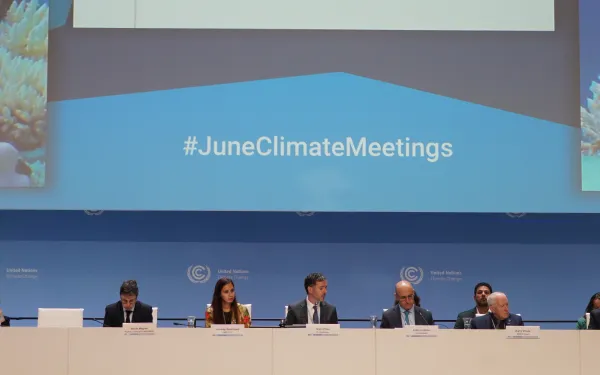
Climate negotiations: Reflections after the Bonn meeting ahead of COP29
By Florencia Ortúzar and Javier Dávalos* The 60th session of the UN Subsidiary Bodies on Climate Change (SB60) was held in Bonn, Germany, from June 3-13, 2024. These sessions, held twice a year, consist of technical meetings at which government delegates advance the agenda for international climate negotiations. The Bonn session was part of the preparations for the twenty-ninth United Nations Climate Change Conference (COP29) to be held in Baku, Azerbaijan, in November, and was guided by the agreements reached at COP28, held last year in Dubai, United Arab Emirates. AIDA participated in SB60 to bring the voice of Latin America to the negotiations from a human rights and gender perspective. The following are reflections on the four main issues addressed at the meeting: just transition, global accounting, the new financing target, and the Loss and Damage Fund. Work Programme on Just Transition On June 2 and 3, the long-awaited first dialogue took place on the Just Transition Work Programme, which was created at COP27 to address the challenges of the transition to low-carbon economies and societies. The goal is to achieve an equitable and inclusive process that promotes the protection of workers and affected communities. Civil society observer organizations noted that the principles of a just transition require an assessment of the impact of climate action on all human rights - including labor, social, economic and environmental rights - in key areas. To this end, decision-making in the work programme must include social dialogue and multiple levels of consultation with groups and communities. AIDA advocated for the justice dimension to consider the differentiated impacts of the transition in different areas of the planet, particularly in the Global South, where the extraction of transition minerals (lithium, cobalt and copper, among others) threatens fragile ecosystems, species and vulnerable communities. The problems of fossil fuel extraction are being repeated. Safeguards, participatory approaches and international cooperation are therefore relevant. It is also important to support economic diversification approaches that protect us from a new dependence on the sale of raw materials and encourage the search for new sources of income. Follow-up to the Global Stocktake Dialogue The Global Stocktake is a collective assessment mechanism to review global progress on climate mitigation, adaptation and finance every five years. The exercise will allow us to know whether global efforts are sufficient to meet the goals of the Paris Agreement to limit the global temperature rise to below 2°C, and hopefully 1.5°C. The results of the stocktaking should have a direct impact on countries' climate commitments contained in their Nationally Determined Contributions (NDCs). The text of the first stocktaking, adopted in 2023, gave way to the process of updating the NDCs, which countries must submit in 2025 and which must reinforce the historic commitment made at COP28 to phase out fossil fuels, set specific targets to reduce methane emissions, triple renewable energy, and double energy efficiency. The updated NDCs must include clear adaptation measures based on the conservation of biodiversity and key ecosystems such as the Amazon, wetlands and oceans. AIDA will monitor and follow up to ensure that countries in the region make progressive climate commitments that are consistent with what was agreed in the Global Stocktake. The new collective quantified goal on climate finance In 2009, developed countries agreed to mobilize $100 billion per year by 2020 to support climate action in developing countries. Then, in 2015, when the Paris Agreement was signed, it was agreed to set a new collective quantified goal on climate finance (NCQG). This target should be adopted in November, during COP29, and the Bonn meeting should pave the way for it. In addition, the new target will be an indicator of developing countries' ability to meet their updated NDCs, as well as a sign of fairness that could strengthen the credibility of the climate negotiation system. However, reaching an agreement has not been easy due to the number of decisions needed to outline the new target in its entirety. The most difficult point to agree on is the amount that developed countries will have to commit to. So far, they have only agreed that it should exceed US$100 billion. The Latin American countries, for their part, have not been able to propose figures based on the needs of the region. The list of countries that will contribute to the target is also still under discussion. According to the developed countries, some countries at an advanced stage of development could begin to contribute. There is also debate over whether the new target should also be used to finance loss and damage compensation, an issue that was not considered when the previous target was discussed and for which there is now a special fund. Another challenge for developing countries is that the financing resulting from the new target should not increase public debt. There are other details that still require agreement. The COP co-chairs must now propose a document that reconciles divergent visions and serves to reach agreement at COP29. Countries can apply the lessons learned from the first target and secure a new target that is more effective in terms of quantity and implementation. Financing climate action is neither a handout nor a charity, but a duty and responsibility of developed countries. It is also in their interest: the effects of the climate crisis are global. Without a goal, there are no financial flows, and without financing, there is no way to address the crisis. Launching the loss and damage fund The Loss and Damage Fund was established in 2022 at COP27, and its operationalization was agreed a year later at COP28. While the creation of the fund is welcome, it is only a first step in making it the channel of support so desperately needed by countries already suffering the worst impacts of the climate crisis. There are many challenges ahead. The Bonn meeting confirmed that the World Bank will be the interim administrator of the fund for the first four years. For civil society and developing countries in general, loss and damage must be recognized as the third pillar of climate action, alongside mitigation and adaptation. However, some developed countries seem to be suggesting that with the creation of the fund, it would no longer be necessary to include the issue as part of the new collective quantified climate finance goal, which does not make sense. Moreover, the amount that developed countries have pledged to the fund so far is less than 0.2% of what is needed annually. There is still no strategy that proposes how much contributing countries should contribute according to their responsibilities and capacities. The fund must be decentralized and involve civil society, indigenous communities, youth, women and other vulnerable groups from the outset to ensure that the money reaches those who need it. It must also be efficient and sufficient, providing financial and quality assistance as quickly as possible. On the other hand, developing countries, including those in Latin America and the Caribbean, must make efforts to monitor and report losses and damage in their territories, which often poses economic, technical and even methodological challenges that require support, training and guidance. The results of international climate negotiations are slow and the process often frustrating. The attitude of many industrialized countries, which shirk their responsibilities while enjoying development at the expense of the global climate balance, is disappointing. However, in the face of such a scenario, lowering our guard is not an option. The organized civil society working around these negotiations is a cause for hope. It is a demonstration of solidarity and competence that achieves results and does not give up. By being there, representing our region, we are contributing to this movement with the wisdom and strength that comes from the Global South. *Florencia Ortúzar is a senior attorney with AIDA y Javier Dávalos is the Director of AIDA's Climate Program.
Read more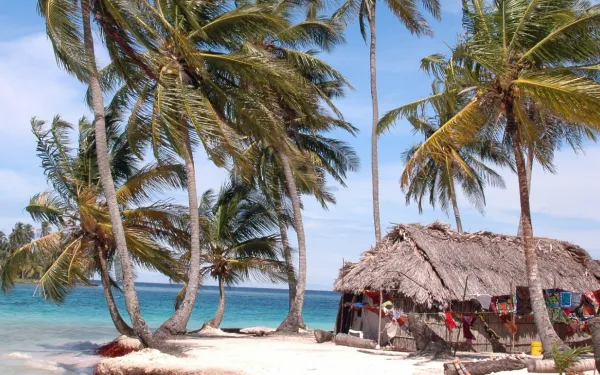
What you need to know about the “loss and damage” of the climate crisis
Recent flooding in the southern Brazilian state of Rio Grande do Sul has forced more than 500,000 people from their homes, turning them into climate refugees and causing millions of dollars in crop and livestock losses.Meanwhile, in Panama, some 300 coastal families had to leave Cartí Sugdupu, an island threatened by rising sea levels, and be relocated to a government-built settlement off the Caribbean coast.These types of negative impacts of extreme weather events, which occur despite or because of the lack of mitigation and adaptation measures, are technically referred to as "loss and damage" of the climate crisis.Scientific evidence shows that these losses and damages are already occurring, will increase, and are unevenly distributed, with a disproportionate impact on developing countries and vulnerable groups.This issue - key to international climate negotiations - is closely linked to the concept of climate justice, as it raises the question of who should pay for the losses and damages in the poorest countries, which bear little historical responsibility for the climate emergency.In this text, we address the basic aspects of this issue, which is becoming increasingly relevant and requires urgent action. What counts as loss and damage?Let's start by breaking down the term a little further:"Loss" refers to what is permanently lost due to the climate crisis, such as human and other species’ lives, territories, water sources, ecosystems, livelihoods, cultural heritage, and languages."Damage" refers to what has been affected by the climate crisis but can be restored or rebuilt, such as impacts on physical and mental health, soils, roads, schools, homes, health centers, and businesses. Loss and damage are usually divided into two categories, which may overlap:Economic. Loss and damage can be assigned a monetary value: destruction of assets such as houses or cars, loss of livelihoods such as crops or livestock, reduced productivity due to lost working hours, damage to basic infrastructure or disruption of supply chains. This can occur at the international, national or local level.Non-economic. Loss and damage that is difficult to measure in monetary terms. They include loss of human life, damage to health, the trauma of forced displacement, and impacts on culture, language, heritage, identity, etc. This category also includes the loss or reduction of biodiversity, the extinction of species, and the disruption or loss of ecosystem services, such as the production of oxygen by a forest. In international climate negotiations, however, the term takes on a different meaning. The United Nations Framework Convention on Climate Change refers to efforts to "avert, minimize and address loss and damage associated with climate change impacts, especially in developing countries that are particularly vulnerable to the adverse effects of climate change."The terms "avoid" and "minimize" generally refer to mitigation and adaptation, respectively, while the word "address" refers to actions to deal with the impacts of the climate crisis that could not be avoided. How much money is needed to address loss and damage?Discussions on loss and damage, which address issues such as liability and compensation, have been contentious in international negotiations. Developed countries – historically responsible for most of the greenhouse gases that have warmed the planet – have resisted possible agreements that would hold them accountable and make them pay for the loss and damage their emissions have caused and continue to cause.How big is the bill?According to a report published by the Loss and Damage Collaboration, 55 of the most climate-vulnerable economies will suffer losses of more than $500 billion between 2000 and 2020, and this could increase by a similar amount in the following decade. Other estimates put the annual cost of loss and damage at $400 billion by 2030.In Latin America, according to a 2019 study, losses and damages due to the climate crisis are expected to reach $462 billion by 2050 and could rise to $891 billion by 2070. What is being done to address loss and damage?Although the issue of loss and damage has emerged in international climate negotiations for more than three decades, it only gained momentum in 2013. That year, at the 19th United Nations Climate Change Conference (COP19), countries established the Warsaw International Mechanism on Loss and Damage with a mandate to share knowledge, strengthen dialogue among stakeholders, and mobilize expertise to strengthen action and support on the issue.In 2015, developing countries successfully lobbied for the inclusion of an article on loss and damage in the Paris Agreement (a legally binding international treaty in force since 2016), but the issue of finance was left out.This brings us to the next milestone, which occurred at COP27 in Egypt in 2022, when it was agreed to establish a Loss and Damage Fund to provide financial support to developing countries.A year later, at COP28 in Dubai, the launch of the fund was agreed, including the rules of operation and other key aspects, like an invitation to the World Bank to act as interim manager for the first four years.In June 2024, during the Bonn negotiations, the World Bank accepted the invitation to manage the fund, and discussions began to make it operational.Civil society is calling for loss and damage to be recognized as the third pillar of climate action (alongside mitigation and adaptation), but developed countries are resisting, suggesting that the creation of the fund would be sufficient and even suggesting that loss and damage should not be part of the new global finance goal.While welcome, the existence of the fund is only the first step in making it what is so desperately needed by countries suffering the worst impacts of the climate crisis. Challenges include:Financing. Developed countries have so far pledged US$700 million, less than 0.2% of what is needed ($400 billion).Governance. Among other things, the World Bank must ensure the independence and integrity of the fund's Board and Secretariat, that all countries party to the Paris Agreement have direct access to resources (even if they are not members of the Bank), and that resources are delivered in a sufficient and efficient manner.Participation. The Fund requires a decentralized structure and the participation of civil society, indigenous communities, youth, women and other vulnerable groups from the outset to ensure that the money reaches those who need it.Access. The fund should provide direct access to funding, not only to national authorities, but also to civil society organizations and affected communities.Inventories. Developing countries need to monitor and report losses and damage on their territory, which requires economic and technical resources. Sources- United Nations Environment Programme, "About Loss and damage".- Preety Bhandari, Nate Warszawski, Deirdre Cogan y Rhys Gerholdt, "What Is 'Loss and Damage' from Climate Change? 8 Key Questions, Answered", World Resources Institute.- United Nations, "Loss and Damage: A Moral Imperative to Act".- The Loss & Damage Collaboration, "WHAT IS LOSS AND DAMAGE?".- The London School of Economics and Political Science, "What is climate change ‘Loss and Damage’?".- Navin Singh Khadka, "COP27: what does the concept of 'loss and damage' mean for extreme weather pitting rich and poor countries against each other," BBC Mundo.- Alejandra Cuéllar, "COP27: What are losses and damages, and what do they mean for Latin America?", Climate Tracker.- Adriana Abramovits, “The Loss and Damage Fund, why is it not what civil society expected?”, Dejusticia.
Read more